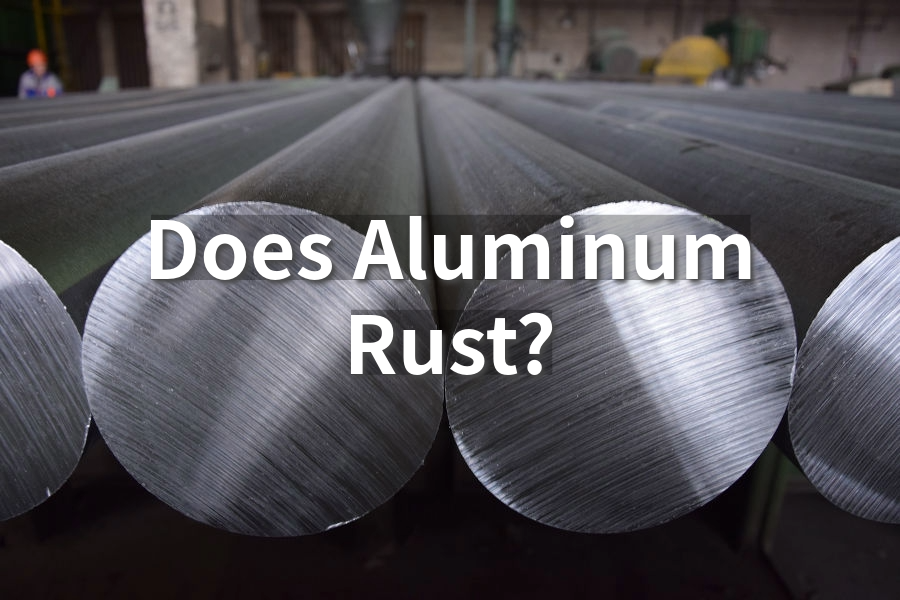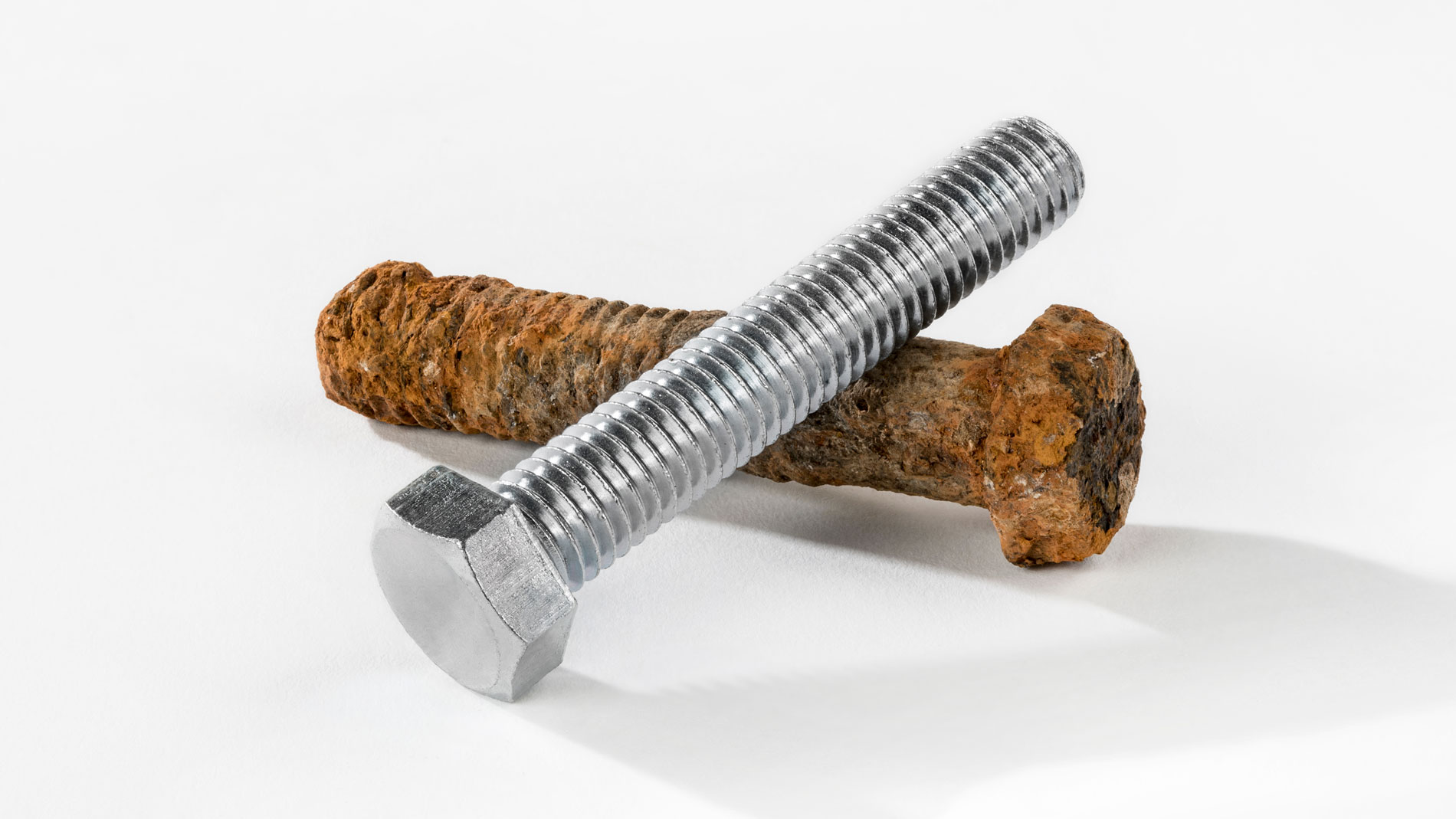Does Aluminum Rust?

This blog explains how aluminum and its alloys resist rust, why anodizing improves corrosion resistance, and what it means for 3D printing and CNC.
Introduction
Aluminum is a metal that does not rust like iron. However, it can undergo corrosion when exposed to certain environmental factors.

Source: aaluminum.com
Rust is the red oxidation product of iron and its alloys like steel. Corrosion refers to the deterioration of various metals through chemical reactions with their surroundings.
Does Aluminum Rust?
Unlike iron, aluminum does not contain iron in its composition. Rust is formed when iron or iron-containing alloys like steel react with oxygen and moisture in the air. For rust to form, the presence of iron is essential.
Aluminum lacks this property and hence cannot rust. However, when aluminum is exposed to oxygen in the air, it develops a thin, transparent layer of aluminum oxide on its surface that protects the metal beneath from further oxidation.

Source: limedion.de
This aluminum oxide layer is commonly known as the aluminum's passive layer, which serves as an effective barrier between the aluminum metal and the environment, preventing rust.
Does Aluminum Corrode?
Although aluminum does not rust, it can undergo corrosion when exposed to certain environmental conditions due to chemical reactions.

Source: monroeengineering.com
When aluminum comes into direct contact with substances like salt water or harsh chemicals, these agents can penetrate the thin protective oxide layer on its surface.
This allows corrosion to slowly occur from underneath this layer. However, thanks to the oxide skin that forms quickly, aluminum's corrosion process is much slower compared to metals like iron.
But prolonged exposure to extremely corrosive agents can lead to gradual degradation of aluminum over time if the oxide layer is continually breached.
How Do Aluminum Alloys Resist Rust?
While pure aluminum does not rust, many aluminum products are actually alloys made of aluminum mixed with other metals like copper, zinc, magnesium, and manganese. The added metals influence the corrosion resistance of the aluminum alloy.
However, in very specific conditions like seawater, certain aluminum alloys may corrode more due to galvanic interactions between the different metals.
Nonetheless, the term 'rust' strictly refers to iron's oxidation reaction. Aluminum alloys may degrade over time in strong corrosives but do not experience rusting even when other metals are included in their composition.
Why Does Anodizing Improve Corrosion Resistance?
Anodizing is an electrochemical process that enhances a metal's resistance to corrosion. It involves placing aluminum in an electrolytic solution and passing an electric current through it. This makes the natural aluminum oxide layer much thicker while also sealing any pores in it.
An anodized aluminum surface will have an oxide coating that can be up to 50 times thicker than the natural skin.
Given its strength and density, the anodized layer protects the metal very effectively by providing a barrier against corrosion or chemical exposure.
That's why anodized aluminum is ideal for applications like 3D printed parts and CNC machined components that require extra resilience against weathering over prolonged usage. The thicker oxide coating ensures low maintenance and longer service life.
Conclusion
In summary, while aluminum does not experience rusting like iron due to the lack of necessary iron content, it can still corrode in extremely harsh chemical or marine environments that penetrate the metal's thin natural oxide skin.
Anodizing aluminum significantly strengthens this protective barrier and leads to superb corrosion resistance.
That is why anodized aluminum is well-suited for applications involving 3D printing, CNC machining, and other industrial fabrication techniques requiring durable materials.
Need High-Quality Galvanized Steel Solutions?
Whether you're designing for strength, durability, or magnetic properties, our 3D printing and CNC services can deliver exceptional results with galvanized steel. Contact us now to explore how we can optimize your next project!
Whether you’re aiming for strength, durability, or magnetic properties, Unionfab has you covered! Our 3D printing and CNC services work seamlessly with galvanized steel to deliver outstanding results. Contact us now to explore how we can enhance your next project!

Here Are Answers to the FAQs
How long does it take for aluminum to rust?
Aluminum does not rust at all since it lacks iron content. It can only undergo corrosion over very long periods when exposed to extremely corrosive substances.
Will aluminum rust if it gets wet?
No, aluminum will not rust even if it gets wet. Water alone cannot cause aluminum to rust. It needs prolonged exposure to corrosive agents like saltwater to slowly corrode.
Which metal is most rust-resistant?
Metals like stainless steel, titanium, aluminum, and zinc alloys are highly rust-resistant due to protective oxide layers that form on their surfaces.
Among these, titanium has one of the best combinations of corrosion resistance, strength, and lightweight properties.
What removes corrosion from aluminum?
Corrosion stains on aluminum can be removed using a solution of baking soda or washing soda. For pitted or heavy corrosion, a solvent like acetone or lacquer thinner can help dissolve and lift off corrosion deposits.
Wire brushing or abrasive blasting may be needed for strongly adhered corrosion layers. Anodizing also converts existing corrosion into aluminum oxide for long-term protection.

